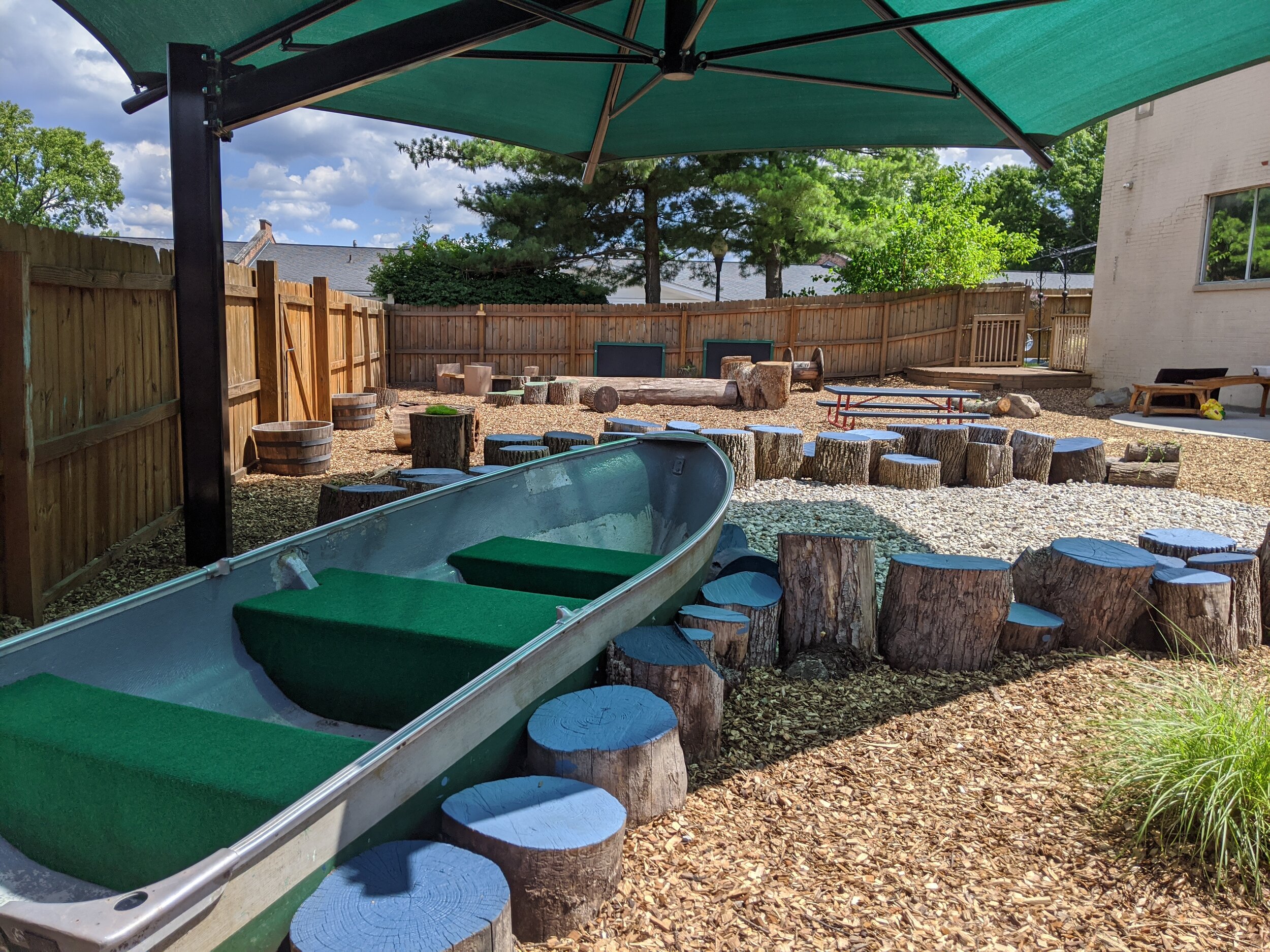
The Importance of Nature
in Play and Learning
What is a natural outdoor classroom?
A natural outdoor classroom creates a play and learning environment with few man made structures, instead utilizing natural elements such as wood, rock, stone, sand, water, and vegetation with the intent of sparking imaginative play and bringing children closer to nature.
Our Natural Outdoor Classroom
Making the move to a natural outdoor classroom was an easy choice. Outdoor play is critical for many of the development tasks that children must achieve- expanding fine and gross motor skills, exploring, risk-taking, and absorbing vast amounts of knowledge. Recent research furthers the benefits of outdoor play to include learning about nature and the world, the surplus energy theory, increased physical activity, improved overall health, and promoting participation in open play.
Our natural outdoor classroom includes elements such as tree stumps and logs, climbing boulders, a garden and flower beds, water tables, a large boat on a stone river bed, and many other nature-inspired features.
Another important feature of our natural outdoor classroom is the incorporation of loose parts. Utilized both in our indoor classrooms and on the outdoor classroom, research indicates that using loose parts has many benefits, such as promoting creativity and problem solving.
“Nature and children are natural playmates; they're both wild and messy, unpredictable and beautiful.”
— Mark Hoelterhoff
The Children & Nature Network completed a synthesis of research and studies on the impact of nature and nature education settings and found the following key benefits:
Children who spend more time outside tend to be more physically active and are also less likely to be overweight.
Children who play in natural settings play in more diverse, imaginative and creative ways and show improved language and collaboration skills.
Children who regularly play in natural settings are sick less often.
Children who play in natural settings are more resistant to stress and have a lower incidence of behavioral disorders, anxiety and depression
Children who play in natural settings have a higher measure of self-worth.
Natural, irregular and challenging environments help kids learn to recognize, assess and negotiate risk and build confidence and competence.
Children who play in nature have more positive feelings about each other.
Having access to diverse nature-based play environments results in greatly reduced bullying behavior.
“Nature breeds curiosity; it helps to grow explorers rather than robots. It reminds us that we are part of something bigger. It grounds us, calms us.”
-Ben Palmer-Fry

“Time in nature is not leisure time; it's an essential investment in our children's health (and also, by the way, in our own).”
— Richard Louv




